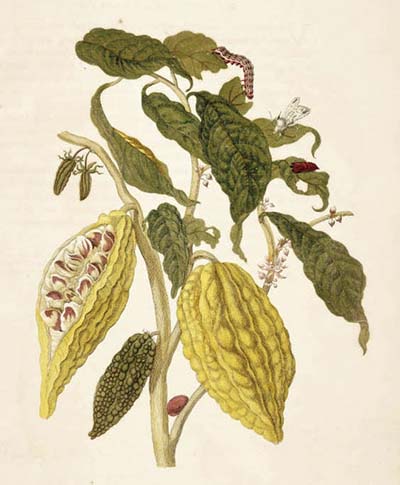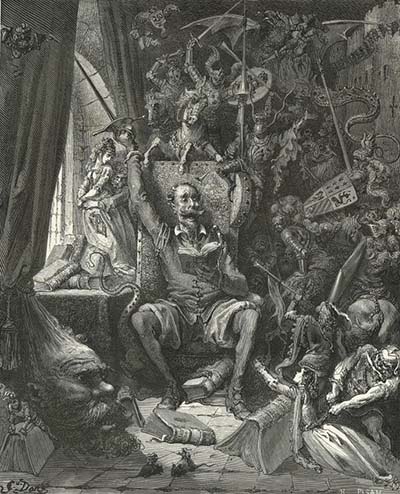January 21-22, the King’s Early Modern Studies Society held their 10th Annual Conference of the Early Modern, showcasing student research as well as hosting two guest lectures. For the second year in a row, this conference was entirely online, and it was well attended, with 20 to 30 attendees at each lecture and panel.

Image of the cacao tree by Maria Sibylla Merian (1705)
The conference hosted freelance journalist Moira Donovan, BA(Hons)’10, as the annual alumni lecturer on Saturday, January 22. Donovan’s lecture focused on how her time in the Early Modern Studies Program (EMSP) has informed her journalistic work, from inspiring her about new topics to explore, to reminding her of the importance of looking through multiple knowledge systems for perspectives on current issues.
On Saturday, the conference had three student panels and the alumni lecture. As panellist Charlie Friesen put it, an important thread in the first two student panels was “the victory of women’s voices through history, rather than despite it.” The first of the student panels, entitled “Knock. Knock. Who’s There? Women!” featured three papers from fourth-year students on responses to individual women’s works, with Grace Day presenting on Sofonisba Anguissola’s self-portraiture, Lara Van de Venter presenting on naturalist Sibylla Merian’s watercolours, and Joanna Daly presenting her translations and analysis of two letters by poet and intellectual Johanna Otho.
The second student panel, “A Space of Her Own,” was on women’s spaces during the early modern period. This panel covered spaces ranging from the religious, as in Lucy Boyd’s paper on the writings of nuns in convents during the seventeenth century, to the secular, like Charlie Friesen’s thesis chapter on women’s cookbook manuscripts; and from the leisurely, like Neyve Egger’s paper on Moderata Fonte’s portrayal of the garden as a female space, to the medical, like Emma Martel’s paper on explanations for monstrous births.

Gustave Doré, Don Quixote amid fantasies of chivalric (1863)
The third student panel, “Welcome to the Renaissance (Men),” focused on works by male authors, with Angus Wilson giving a paper on a letter by Renaissance humanist Poliziano, Erin Inglis speaking on conditional love in Don Quixote, and first-year Daniel Konopelski speaking on Machiavelli.
Throughout the conference, panels and lectures gave rise to interesting and insightful questions for all presenters, from students and professors alike. While these questions covered as wide a range of topics as the presentations themselves, a common theme in many was the way modern perspectives can give new insight into early modern texts.

